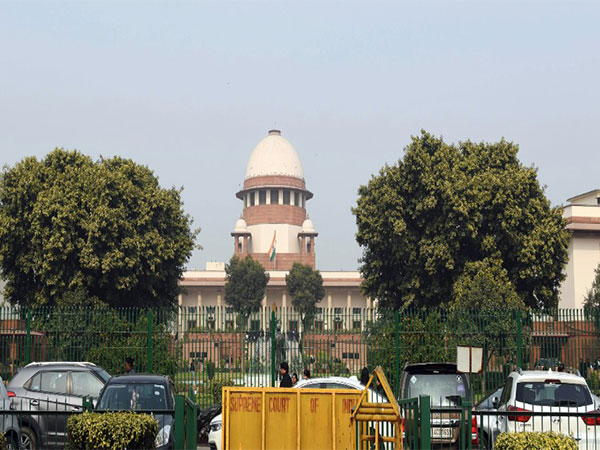New Delhi [India]: The Supreme Court on Tuesday upheld constitutional validity of ‘Uttar Pradesh Board of Madrasa Education Act 2004’ and set aside the Allahabad High Court’s March 22 verdict which had struck down the Act.
A bench Chief Justice of India DY Chandrachud and Justices JB Pardiwala and Manoj Misra however, held the Madarsa Act unconstitutional to the extent it regulates higher education in relation to ‘Fazil’ and ‘Kamil’, which is in conflict with the UGC Act.
The Madarsa Act regulates the standards of education in the State of Uttar Pradesh, said the bench while pronouncing the verdict on pleas against the judgement of High Court.
The right of minorities to administer educational institutions is not absolute and the state can regulate the standards of such education, it added.
The Allahabad High Court had struck down the UP Madrasa Act for violating principles of secularism – a facet of basic structure of the Constitution.
The apex court said that a law can be struck for violation of fundamental rights under part III of the Constitution or on grounds of legislative competence but not for violation of basic structure.
“The legislative scheme for the Act is to standardise level of education being prescribed in the madrasas. The Madrasa Act does not interfere with the day to day working of the madrasas. It is to protect the rights of minority in the State of Uttar Pradesh and is consistent with positive obligation of the State which ensures the students to pass out and earn a decent living,” the verdict of the top court stated.
During the hearing of the case, the apex court had described India as a “melting pot of cultures, civilisations and religions” and stressed on taking steps to preserve it.
It had said that such religious instructions are not unique to Muslim community and other religions have the same too.
NCPCR had contended that the education imparted to children in Madrasa is not comprehensive, and is therefore against the provisions of Right to Education Act, 2009.
The Uttar Pradesh government had said that it was in support of the legislation, however, it added that state has accepted the ruling.
The ruling of the top court came on an appeal against the High Court judgment striking down ‘UP Board of Madarsa Education Act 2004’ as unconstitutional and violative of secularism and fundamental rights.
The appeals against High Court order were filed by Anjum Kadari, Managers Association Madaris Arabiya (UP), All India Teachers Association Madaris Arabiya (New Delhi), Manager Association Arbi Madarsa Nai Bazar and Teachers Association Madaris Arabiya Kanpur.
Madarsas are institutions where Islamic studies and other education may be pursued by students.
On March 22, Allahabad High Court found that the 2004 Act was violative of the principle of secularism enshrined in the Constitution of India.
The High Court further asked the State to take immediate steps so that students pursuing studies in Madarsas of Uttar Pradesh are accommodated other schools.


